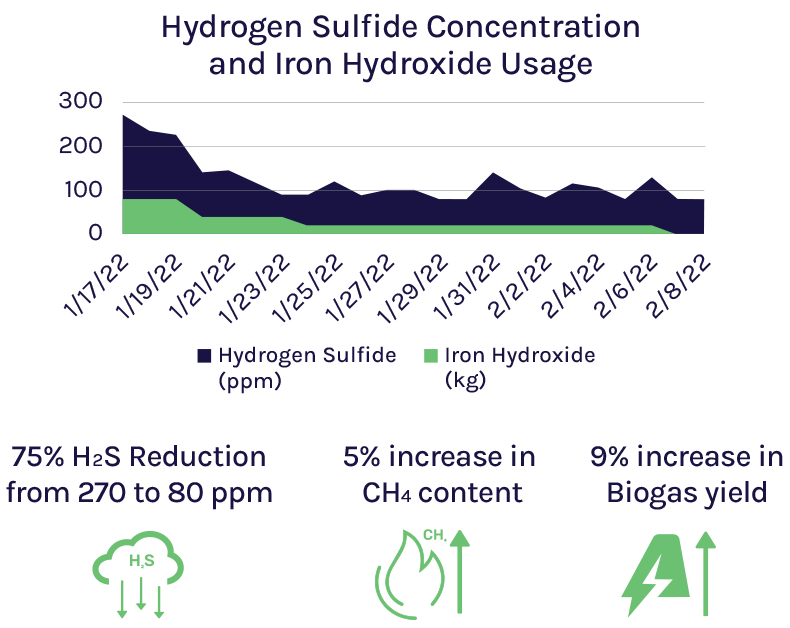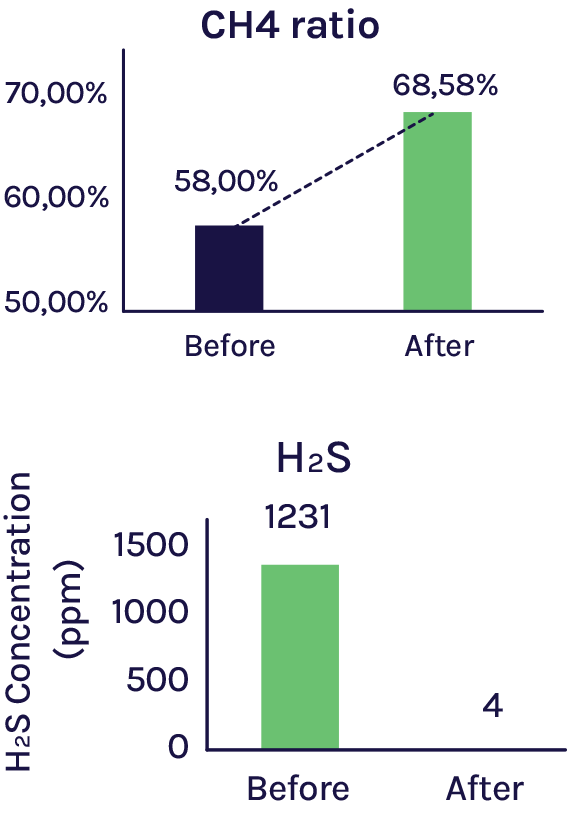
Desulfurization Case in Northern Ireland
A digester operator in Northern Ireland encountered issues with high hydrogen sulfide (H2O) levels of 270 ppm and decreased methane (CH4) production. To tackle this problem, they treated their 600,000-gallon anaerobic digester, processing a mixture of grass, chicken litter, and manure slurry, with daily doses of BGE1 and BGE2, obtaining a 30% reduction of H2S and a 5% increase in CH4 content which translates into 9% more biogas yield.

Kurtz Family Farm - Biogas Series Brings Inoperable Digestor Back to Life
The Holstein Family Farm in Pennsylvania, operating two 150,000-gallon anaerobic digesters, were facing severe concerns with their reactors. The combined feed stock of poultry waste and dairy manure are very high in FOGs (fat, oil and grease), protein, and chemical constituents. Difficulty breaking down these organisms resulted in bulking, low methane output, and very high hydrogen sulfide levels.
Following treatment with Eli Biosciences, the reactor’s performance shifted dramatically. The methane percentage grew by 10%, solids were completely eliminated from the balancing tank, and hydrogen sulfide levels were undetectable.
Product Recommendation Chart
| Feedstock for Anaerobic Digestion / Problem | Product Recommendations | ||||
| Category | Composition/Reason | BGE1 | BGE2 | BGEH | BGEM |
| Cow Manure/ Bedding | Organic with High Cellulose/Hemicellulose |  |
 |
 |
 |
| Hog or Poultry Manure/ Bedding | Organics |  |
 |
||
| Wastewater Solid /Sewage Sludge | Organics |  |
 |
||
| Agricultural Biomass/Crops/Grass | High Cellulose and Hemicellulose/Organics |  |
 |
 |
 |
| Food Waste | Organics with High Fats/ Oils/ Grease |  |
 |
 |
|
| High FOS/TAC ratio | High Total Volatile Acid |  |
|||
| High H2S | Hydrogen Sulfide Generation |  |
|||
| Solid Accumulation/Foam | Difficult Degradable Sludge |  |
 |
 |
 |
| Gas Product Inconsistency | Less Diverse Methanogens |  |
|||
| AD Startup | Requiring hydrolysis bacterial and methanogens |  |
 |
||
Get a Free Expert Assessment of Your Biogas Operation
Tell us about your system, and one of our biogas specialists will personally review your setup and provide clear, practical next steps - no fluff, just expert guidance tailored to your exact challenges.


